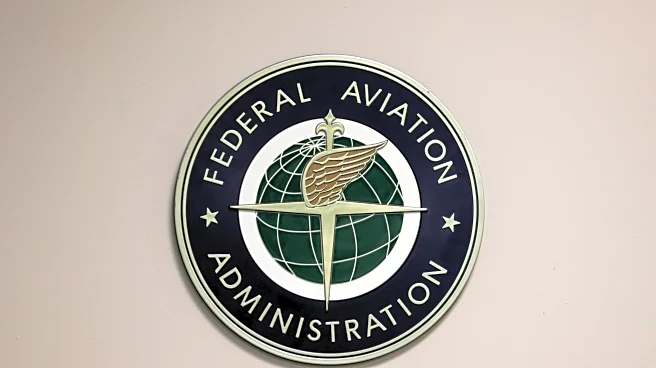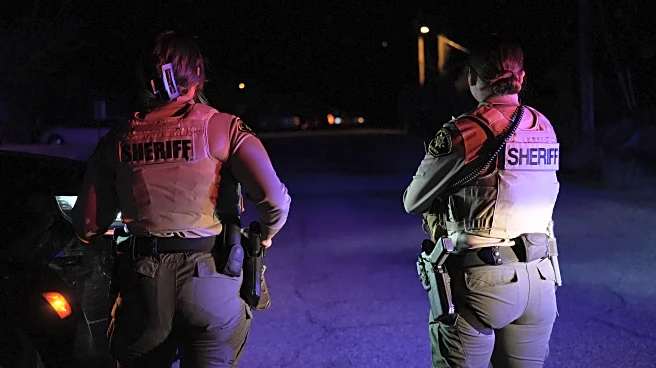What's Happening?
President Donald Trump has initiated a federal law enforcement task force in Memphis as part of his broader crime-fighting strategy. Defense Secretary Pete Hegseth, Attorney General Pam Bondi, and White House Deputy Chief of Staff Stephen Miller visited Memphis to support the operation, which involves federal, state, and local law enforcement officers, as well as Tennessee National Guard members. The task force aims to reduce crime rates in Memphis, with over 50 arrests made in the first two days. Democratic U.S. Rep. Steve Cohen expressed concerns about the federal presence, urging collaboration and cautioning against aggressive tactics.
Why It's Important?
The deployment of federal law enforcement in Memphis is part of President Trump's strategy to address crime in cities, particularly those led by Democrats. This move could significantly impact local governance and law enforcement dynamics, potentially leading to increased federal influence in local matters. Supporters argue it will help reduce crime, while opponents view it as an unnecessary federal intervention in a predominantly Black city. The initiative may also affect public perception of federal involvement in local issues, influencing future policy decisions and political discourse.
What's Next?
The task force will continue its operations in Memphis, with periodic updates on arrests and charges. Tennessee National Guard troops are expected to assist local police, although their exact role remains unclear. In Oregon, similar deployments are underway, with legal challenges from the state's Attorney General. The broader implications of these federal interventions may lead to increased scrutiny and debate over the balance between federal and local authority in crime prevention.
Beyond the Headlines
The deployment raises questions about the ethical implications of using cities as training grounds for federal forces, as suggested by President Trump. It also highlights the tension between federal and local authorities, particularly in cities with significant minority populations. The initiative may prompt discussions on the root causes of crime, such as poverty and systemic inequality, and the most effective ways to address them.










